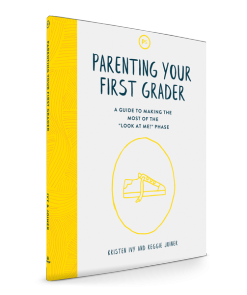
In the world of education, we often group kindergarteners, first graders, and second graders into a category called early childhood. Or, as I personally call them, the “fun” years. In this phase, there’s very little drama or romantic distraction. Instead, it’s the age where make-believe meets reality. Imagination pumps through the classroom so strongly you can almost feel it. And children discover they have the power to create a unique place in this world.
So, welcome to first grade! You’re right in the heart of the sweetest years. Maybe that’s why, as an elementary principal, I often find myself gravitating toward our first-grade hallway. There’s just something special about this phase.
With one year of formal education behind them, most first graders begin to gain remarkable confidence, and enjoy exploring new and unfamiliar concepts.
First-grade classrooms also have the uncanny ability to celebrate growth. Sure, they’re often graveyards for baby teeth and other things children must let go of to make room for growing up. But, there’s also good reason to celebrate every time a child enthusiastically squeals, “I lost a tooth!” It’s why we stop whatever we’re doing, give them our full attention, and smile as we say: “My, my. You’re growing up. Congratulations!” Even though we feel the bittersweet truth of it all.
Parents often ask how to support their children in first grade. The answer is simple: Be with them. Even though they might be starting to read, they still need you to read with them. Even though they like to be around friends, they still want to know you’re right there with them. Even though they might be learning to do cartwheels, they do them much better when you’re watching because you’re with them. First graders are happiest when the adults they look up to are simply around—not just doing things for them, but doing things with them.
In truth, a parent’s attention is the best thing for young children. This is especially true of first graders, who are learning how to see themselves by noticing the way other people see them.
Physiologically, a child’s brain is actually wired for attention. Have you ever noticed your first grader repeating the same phrase over and over, or sometimes even acting out on purpose? Take comfort. Your kid is normal. They do these things because it feels better to receive negative attention than to be ignored. Your first grader craves your attention because it lets him know he matters.
So, what does this phase need most? You.
Life is moving fast. And, sometimes your time and attention may feel like the hardest thing to give. But, this is a phase that won’t last forever. And, when you pay attention to the fun, unique individual your first grader is becoming, you’ll discover the true joy of the first grade. And, when children know they’re valued, it plants a seed of self-worth that will serve them well for years to come
– Sarah Jensen
Founder of KIPP Memphis Preparatory Elementary
Parenting Your First Grader
Parenting Your First Grader simplifies what you need to know about first graders in general and gives you a place to discover more about your first grader—so you can make the most of this phase.
Your house is inhabited by a stellar knock-knock-joke comedian, and you might be in one of the best phases of your child’s life. THIS IS THE PHASE WHEN UNFILTERED WORDS MAKE YOU LAUGH, SCHOOL DROP-OFF MAKES YOU CRY, AND LIFE BECOMES A STAGE WHERE YOUR KID SHOUTS, “LOOK AT ME!”
Don’t have a first grader? We’ve got a book for every age at phaseguides.com.
Source: The Parent Cue






